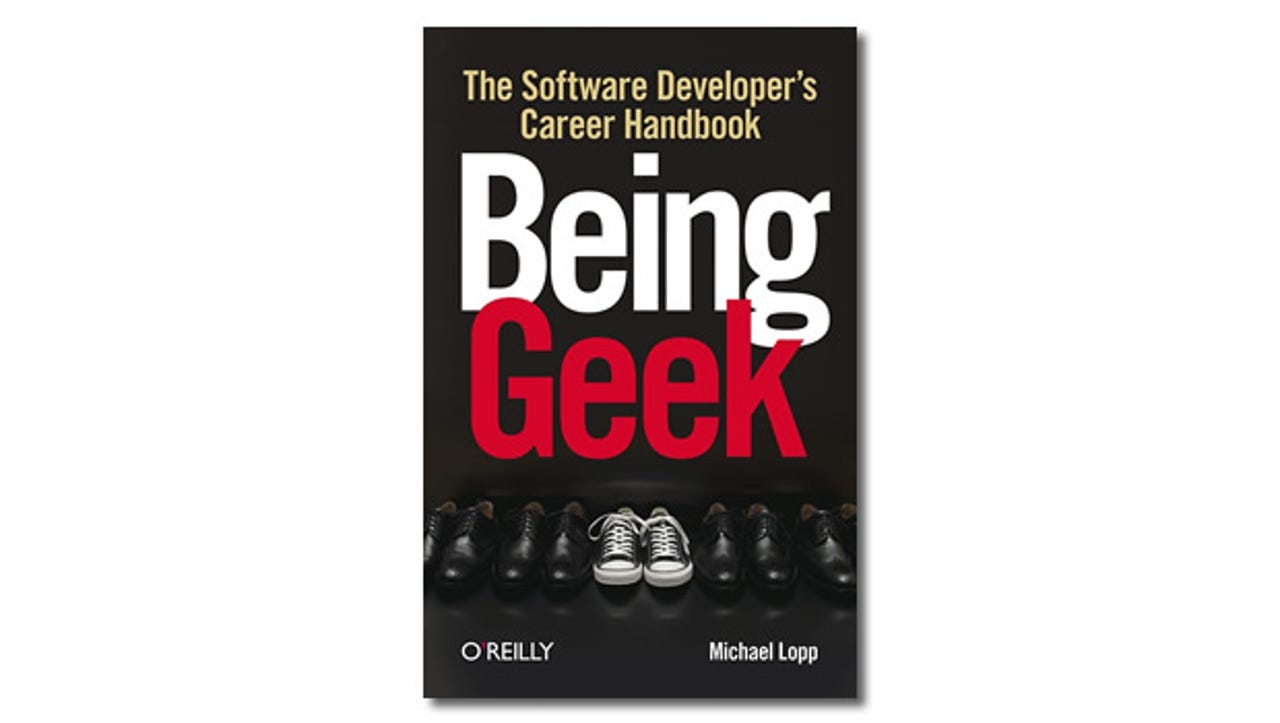Book review: Being Geek

Want to understand the technology industry? Then you need to understand geeks, because they're responsible for it. But if you're a geek and you want to have a career rather than just a job, then you need to understand how to work the technology industry to your advantage. Being Geek is a fascinating (although flawed) guide for both classes of reader.
Michael Lopp has worked at big-name companies like Apple, Netscape and Symantec and he turns what he's learned as an engineer, manager and (yes) geek into excellent advice. Although he hardly ever names names for the really juicy stories, it's like being a fly on the wall at some crucial moments in tech history. If you're a geek, you'll find the guidance on what attitudes and nuances mean, and the various basic types of manager and co-worker you're likely to encounter, very useful. If you're not, they're great stories — like the regular bridge games that defined strategy at Netscape, and why the company was over when they ended. And if you have to deal with or manage geeks, or you just wonder about some of the decisions made in software development that seem inexplicable, then knowing the things for which geeks require rules is extremely revealing.

If you've never understood this about geek culture, it's either a revelation or a truism: some people expect the world to have the same predictable response to input as a computer, and they're looking for the underlying rules that explain the world and the people in it. The assumption is that the world is a system. The angle that you may not have thought of is that this isn't an abstract, disinterested, philanthropic search for information: once they know the rules for a system, geeks want to use them to win.
Lopp reminds the reader that this kind of 'systems thinking' is dangerous, because it can lull the geek-minded into thinking that they know the rules in a world where there really are no rules, and life can be utterly random and irrational. But he also spends a lot more time giving you rules and implying that you can follow them. Tempting as it is to view work as a series of battles and quests with a party of fellow adventurers, life isn't a game with a rulebook and a highscore table.
With that caveat in mind, Being Geek is useful and entertaining. The advice on dealing with interviews is practical and helpful whatever field you work in (and it's advice that whoever is interviewing would love you to have read, so as to avoid all those awkward silences). The section on how to recruit is equally useful even if you're not a manager, because it shows you the process from the other side. Equally useful are the pointers on surviving at work that you rarely see written down. Listen to the stories that define corporate culture, so you know what the company cares about and how it works. Understand how you react to surprises and the different ways your co-workers might freak out when they're surprised. Recognise when someone working with you is toxic — and remember that their refusal to fit in might mean the company actually needs to change (one frustration with Being Geek is that some stories make you long for names and details).
The sections on time management are useful — particularly the crucial point that the details of the system you use to manage your time aren't as important as the fact that you have a system and you actually use it. And this might be the first book to explain professional networking to an audience that isn't naturally social. If the idea of finding the people you click with, and who also challenge you, resonates with you and you'd never realised that's what networking is supposed to be about, then this book is for you.
It's a shame that there are rather too many infuriating typos and too many times when Lopp assumes that you've already read everything on his (admittedly good) blog, Rands in Repose. And if you have, you'll already have read several sections of the book in isolation.
Although it's structured so you can dip in and out, this is a book to read rather than skim because you need to pay attention. There are lots of fundamentally useful lessons about how to turn your job into a career. Small, valuable lessons such as 'never make excuses' are delivered almost as asides. Like any really useful self-help book, there are no actual secrets. However, Being Geek reminds you what you need to pay attention to.
Being Geek: The Software Developer's Career Handbook By Michael Lopp O'Reilly Media 336 pages ISBN 978-0-596-15540-7 £18.99
Mary Branscombe